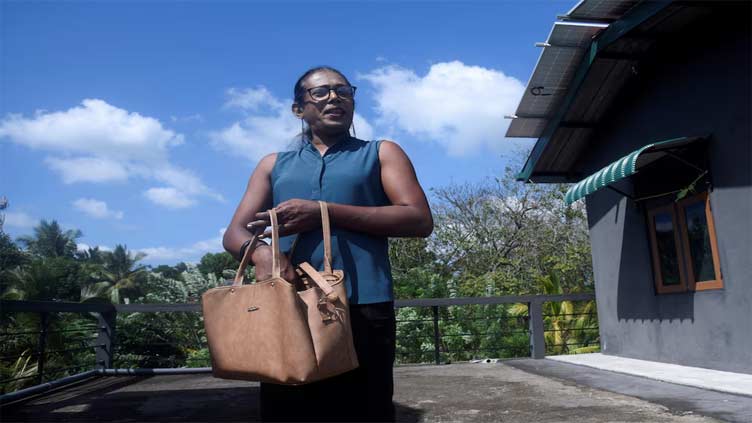Sri Lanka's first transgender candidate hopes to break political, social barriers

World
Transgender people are estimated to make up about 1% of Sri Lanka's 22 million people
COLOMBO (Reuters) - Chanu Nimesha is contesting Sri Lanka's parliamentary election on Thursday as the first openly transgender candidate, hoping to forge a more inclusive and tolerant political culture on the South Asian island.
Transgender people are estimated to make up about 1% of Sri Lanka's 22 million people, according to Equal Ground, a local civil society group. They frequently face social rejection, lack legal protection and have almost no representation in political parties.
Nimesha, who is contesting from Kegalle - about 80km (50 miles) east of Colombo - said she was the first transgender person to run for a seat in the 225-strong parliament and that her message of social justice had been well received.
"I'm not concerned about winning or losing," she said, sitting in her one-bedroom flat. "But it is important for me to be present in this space, to be seen, to inspire others like me. I want to help everyone, not just my community."
Nimesha, 49, is contesting for the Socialist Party of Sri Lanka and one of about 8,000 candidates in the poll, which comes less than two months after Marxist-leaning Anura Kumara Dissanayake won September's presidential election.
High debt, shortsighted economic policies and tourism revenue losses from the COVID-19 pandemic plunged Sri Lanka into its worst financial crisis in more than seven decades in 2022.
Nimesha was one of thousands who marched in Colombo that year to occupy then President Gotabaya Rajapaksa's office and residence, forcing him to flee the country and later resign.

Supported by a $2.9 billion International Monetary Fund bailout, Sri Lanka has made a tentative recovery but a quarter of the population remains in poverty.
Nimesha raises funds for her activism and political campaign by working as a quantity surveyor at a nearby construction site. She is also an amateur actress, composes music and has written a book set to be published in the next two months.
Born in the southern town of Galle, Nimesha was 14 when her father was killed in a political insurgency in 1989. She eventually moved to Colombo and is no longer in touch with her conservative family.
"I understand their decision to cut ties with me," she said, her makeup lined up neatly on a table next to a bookcase filled with books on socialist and leftist ideology. A guitar lies on the bed nearby.

"This is why I'm so passionate about the need for inclusiveness. We need to see the humanity in each other and accept each other. Only then can we build a society where we all belong."


